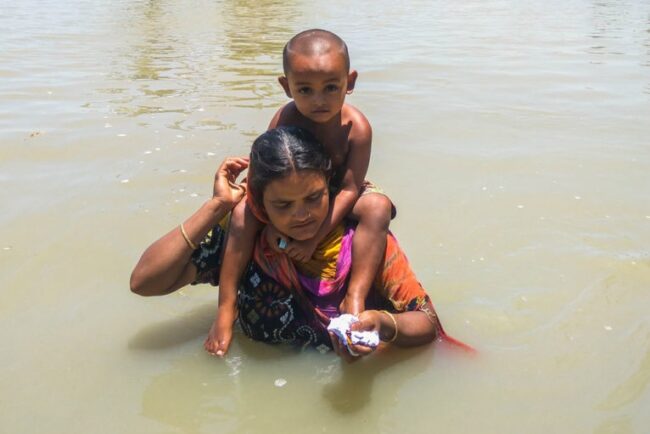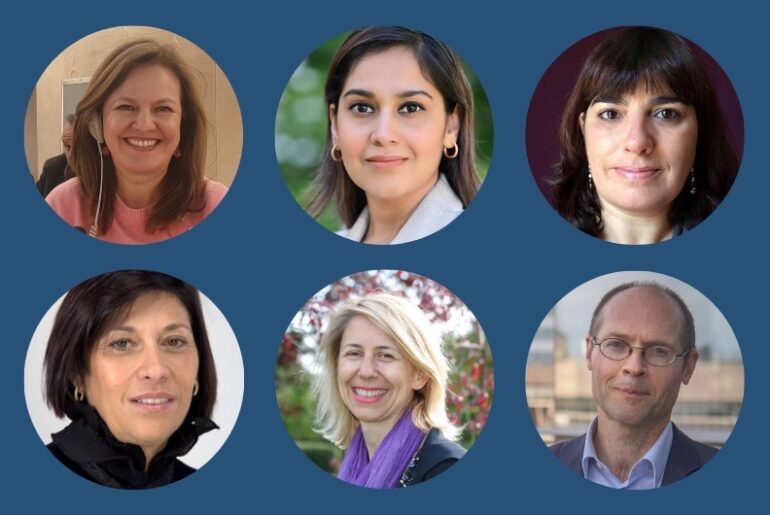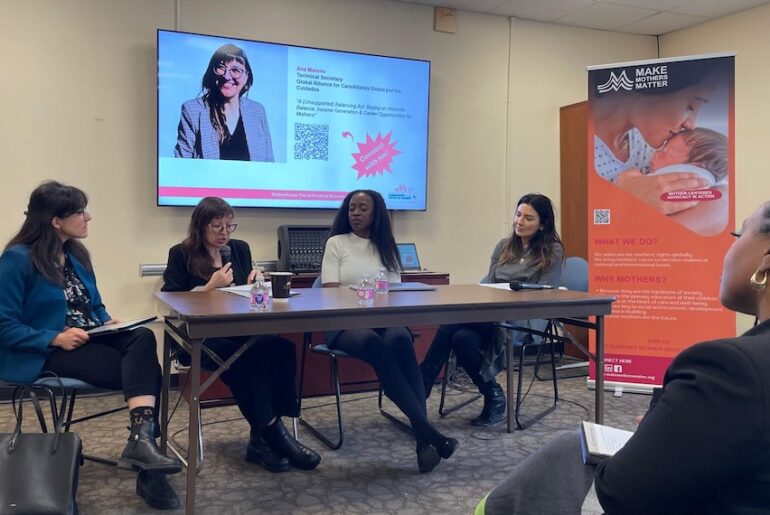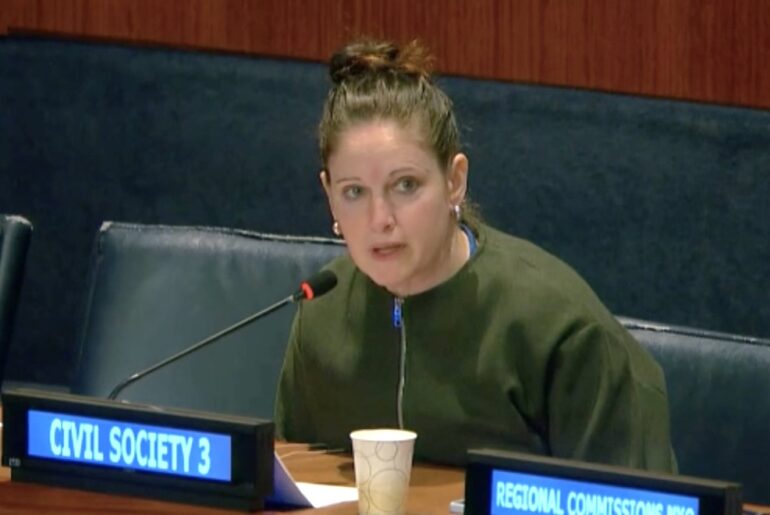Friendship NGO at the forefront of the fight against climate change
09.12.21
Our associate member in Bangladesh, Friendship NGO, responds to the call for input into an upcoming UN report on Human Rights and Climate Change.

The climate crisis is hitting Bangladesh hard. The country’s geographical location makes it extremely fragile and prone to climate related disasters – it ranked seventh in the 2021 Climate Risk Index. Locked between the Himalayas in the North and the Bay of Bengal in the South, it is densely populated, with maximum number of people likely to be impacted by climate change.
Floods, cyclones, saline water, affected land and droughts in various parts of the country, all have a direct effect on the quality of lives. In particular, in Southern regions, salinity heavily affects crops, drinking water and health.
In most cases nutrition levels decrease due to the lack of variety in food leaving women in these areas more likely to miscarry, and hidden issues like child marriage, social ostracism, mental health, abuse, all increase.
Seasonal, temporary, permanent migration is increasing in these areas due to climate change. More men than women migrate to other places from these areas, with women and children left behind, falling victim to vulnerable and hazardous situations.
Women and girls are disproportionately affected by climate change. In the cyclone disaster of 1991 for example, 90% of the 140,000 people who died were women. They are often confined to roles and jobs that make them more reliant on natural resources. Because they face barriers in accessing financial or technical support, or are denied land ownership, they are less able to adapt to climate change, to recover after disasters and are therefore globally more vulnerable.
As Friendship NGO stresses, climate change takes away basic human rights and amplifies the trouble of accessing the right to life, right to health, housing, education, water, sanitation, access to legal or financial services, and for the most vulnerable communities, the inability to be able to find a platform for restarting life.
Here are some poignant testimonials collected from communities served by Friendship:
- Mashkura lives in a remote village near Sundarbans, in the Bay of Bengal. Happy childhood, later a happy marriage, until the sea level rose, embankments broke, salinity from the sea spread inland, impacting lives dramatically. No one repaired the embankment and over a period of 6 years, Mashkura suffered 3 miscarriages leaving all her dreams shattered. She was abandoned by her shrimp farmer husband and then faced social ostracism. Mashkura was a victim of salinity.
- 14-year-old Nupur, lives in the North on the banks of the mighty river Brahmaputra. She is one of the 5 daughters of a day labourer, Quyyum, of Char Dewali Khola. They live hand to mouth, having had to shift homes several times over the last decade, victims of repetitive floods and river erosion.
- Molida was selected as one of ten members of a disaster volunteer team in her village in Goynar Potol. She had been trained by Friendship in search and rescue and disaster management techniques. During the 2019 floods, the 19-year-old realised that her sick and disabled neighbours were in danger of being drowned. She took help from her volunteer team to build a banana raft. With some assistance from her mother she managed to rescue 45 vulnerable people. In a conservative rural community such as hers, a woman is not expected to do what she did, but she never hesitated.
Bangladesh has two cyclones and one flooding season, leading to recurring disasters on an annual basis. Cyclones have a major impact on the population of Bangladesh: over the last 10 years, cyclones have affected more than one million people in the country when they make landfall in the southern coastal region. River erosion displaces 50,000 to 200,000 people each year and 60% of the country gets flooded each year.
UNICEF estimates that one in three children in Bangladesh, nearly 20 million children, bear the brunt of climate change every day. Children are victims of extreme weather, floods, river erosion, sea level rise, and other environmental shocks driven by climate change. Many end up adrift in city slums, their lives and prospects shattered. Millions of children are trapped in exploitive child labour, child marriage and trafficking.
But there is hope, and some progress. At the recent COP26 gathering in Glasgow, the Government of Bangladesh officially released its first National Strategy on Internal Displacement Management. At the event, it was confirmed by specialists that Bangladesh is ahead of other countries. The country has already adopted rights-based strategy on the basis of international standards and in the spirit of climate justice. The new strategy upholds that internally displaced persons shall enjoy, in full equality, the same rights and freedoms under international and domestic laws, as do other persons of the country.
Read Friendship NGO’s full Contribution
The contribution provides input to an upcoming report of the Office of the High Commissioner for Human Rights (OHCHR) on Human Rights and Climate Change, that will be presented at the 50th Session of the Human Rights Council.
Mothers, unpaid care work and global crises – connecting the dots
02.07.24
UN New York / HLPF - Register now to join us online at this year’s High Level Political Forum side-event.
Time Poverty and the Motherhood Penalty
Unveiling Economic and Social Injustices
09.07.24
Mothers play an essential role in families by ensuring their loved ones are nourished, educated, and healthy, but their unpaid care work often leads to economic and social injustices, known
Envisioning care as a common thread to global crises
29.07.24
UN New York - Our virtual HLPF side-event brought together experts to shed light on how the various global crises we face (in particular climate change and other environmental crises,








